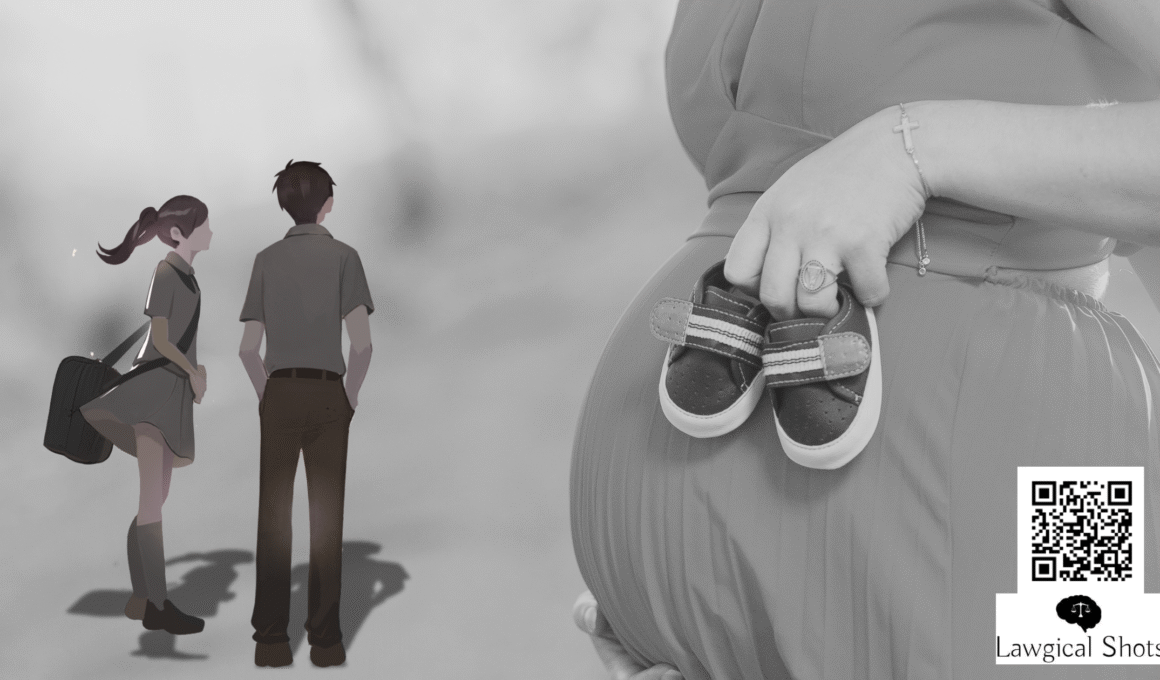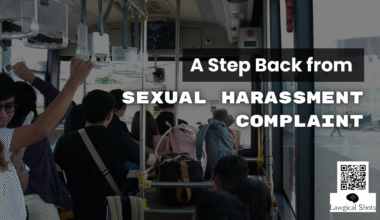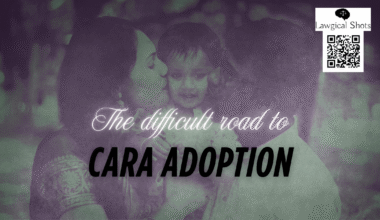In a recent news report, a Washington Mom, aged 43, allegedly gave birth to the child of a minor. The minor boy whose child the 43 Y/O woman gave birth to, was her daughter’s date as reported. The US Mom is facing trial for criminal sexual assault and possession of child porn. In India, a different legal picture would emerge under the Protection of Children from Sexual Offences Act, 2012 (POCSO Act) (and also under the Indian Penal Code, other child-protection statutes.
In short:
(i) sexual activity with a minor is punishable under POCSO Act;
(ii) the role of an adult woman in relation to a minor victim triggers POCSO liability;
(iii) criminal consequences ensue even if a child is born as a consequence of the act;
(iv) civil issues (custody, welfare of the child, etc) may also be engaged
However, we shall focus upon the penal/regulatory regime under the POCSO Act.
POCSO Act Scan of US MOM Case
In the news, the accused adult woman engaged in sexual activity with a minor (the daughter’s date) and gave birth to a child. Under POCSO, the following aspects would be relevant:
Offence of penetrative sexual assault (Section 3 / Section 4)
If the adult woman’s act actually involved penetration (penis-vagina, or object insertion, etc) of a child, then Section 3 defines the act, and Section 4 prescribes punishment. The adult woman could be charged under these provisions.
Offence of sexual assault (non-penetrative) (Sections 7/8)
If the act is alleged to be non-penetrative (for example, touching, molestation), then the relevant offence might be Section 7 (sexual assault) or Section 8 (sexual harassment). It depends on the nature of the act proved. This is not likely because as per the facts of the case, the woman was pregnant with the minor’s child and already gave birth to a baby, it will most likely fall under penetrative act.
Evidence of pregnancy / birth of child
The fact that a child was born indicates sexual activity and may offer corroborative evidence. However, the offence under POCSO is complete once the defined act is proved; the birth of a child may aggravate the gravity but is not necessary for holding the woman liable. It may also trigger issues of custody, welfare, and may be relevant for aggravation in sentencing.
Role of consent / minor’s age
Under the POCSO Act, the “consent” of the child is immaterial. A minor cannot legally consent to sexual activity. Thus, even if (for example) the minor testifies of a consensual act, or there was an appearance of consensual relationship, it remains an offence under POCSO Act.
Liability of US Mom
Some defence arguments are made at times that a woman cannot commit penetrative assault, because male anatomy is required. But Courts have rejected that formalistic reading. Another facet of the possibility is discussed below.
Custody/ Welfare of the new born child
While the POCSO Act is primarily penal in nature, the birth of the child may engage other family laws or child welfare statutes (such as the Juvenile Justice (Care and Protection of Children) Act, 2015, guardianship provisions, custody issues). It may also influence sentencing (impact on child, victim, potential for rehabilitation) though these are ancillary to the conviction of the Mom.
Legal Consequences for Mom
- Once an FIR is registered under the POCSO Act (and perhaps IPC or other statutes) the accused adult woman may be arrested, investigated, charged and tried in a Special Court.
- If found guilty under Section 4 (penetrative sexual assault) she may be sentenced to rigorous imprisonment for a substantial term, with fine.
- Punishment for other offences (sexual assault, sexual harassment) shall also accompany.
- Non-bailable nature: Depending on the specific provision, bail may be restricted. In POCSO cases, Courts adopt a stricter approach.
- Special procedures: Recording of child’s statement, trial in camera, speedy disposal, etc.
Recent Noise on Gender-Neutrality of POCSO Act
A key legal issue raised by many is: “Can a woman be an accused under the POCSO Act, especially for penetrative sexual assault (Sections 3(1)(a) to (c), Section 4)?”
Understanding Settled Picture
- The Delhi High Court in August 2024 held that yes, a woman may be prosecuted for child sexual abuse under the POCSO Act. (Source)
- The Karnataka High Court in August 2025 ruled that the POCSO Act is gender-neutral and a woman can face charges under Sections 4 and 6 for penetrative sexual assault. (Source)
- Delhi High Court also observed the Act is not gender-biased but gender-neutral. (Source)
These judicial developments indicate a trajectory in interpreting the POCSO Act for protecting children rather than restricting its applicability based on gender of offender. However, the Supreme Court recently took up the question for adjudication.
Pending Questions before Supreme Court
There is a petition filed in the Supreme Court of India (Archana Patil v. State of Karnataka) challenging applicability of Sections 3(1)(a)–(c) (which use male pronouns) to a female accused.
This means that a definitive ruling from the Apex Court on whether the gendered wording of the Act precludes a woman being charged under specific penetrative sexual assault provisions, is awaited.
Implications of the Supreme Court decision
- If the Supreme Court holds that a woman cannot be charged under certain sections because of male‐specific phrasing, it would create a legal lacuna. In that case, women may still be held liable under non-penetrative sexual assault provisions, but not under penetrative ones.
- Such a decision may prompt legislative amendment to the Act’s wording to substitute “he/his” with “person” or “they”.
- Until the verdict, lower courts may follow existing precedents of the High Courts upholding gender-neutral interpretation.
- Practically, many cases involving female offenders under POCSO will need to monitor this decision for clarity.
POCSO Conclusion in US Mom Case
In the scenario of an adult woman having sexual relations with a minor and giving birth to a child, the following must be highlighted:
- Under the POCSO Act, the adult woman can be held criminally liable if the facts qualify (child under 18, sexual act proved, etc).
- The age of the child, nature of the act (penetrative or not), reporting and investigation are critical to Prosecution case.
- Even if the adult woman argues anatomical impossibility or gender‐based exemption, recent High Court decisions reject such exemption and hold the provisions gender-neutral.
- Since the matter is not entirely settled, the question of whether the gendered wording in Sections 3(1)(a)–(c) excludes a woman as principal offender stays before the Supreme Court. Until the Apex court settles the same, the legal uncertainty remains.
Explore








